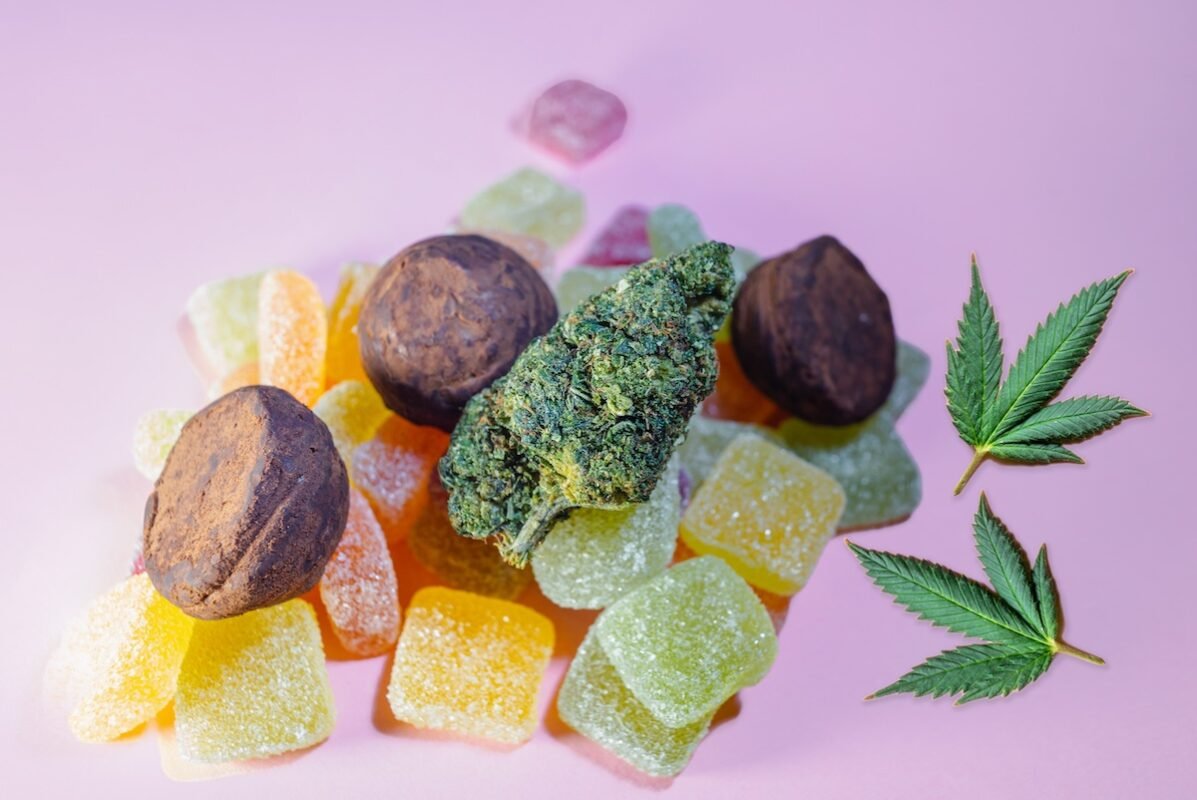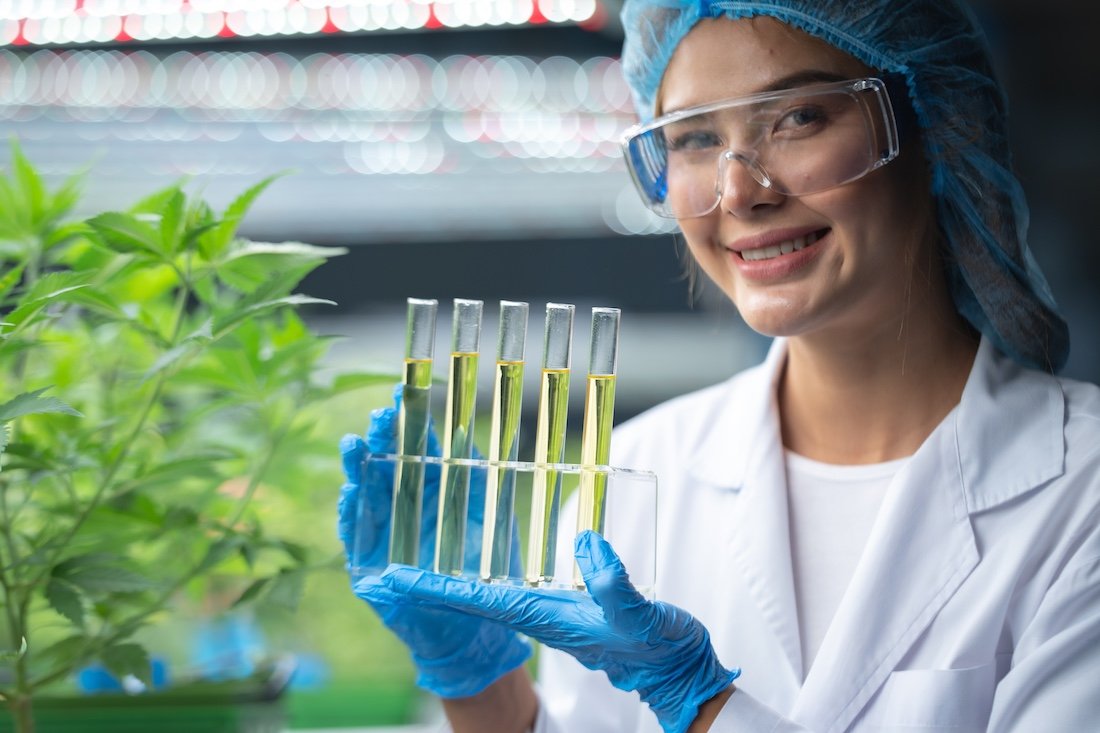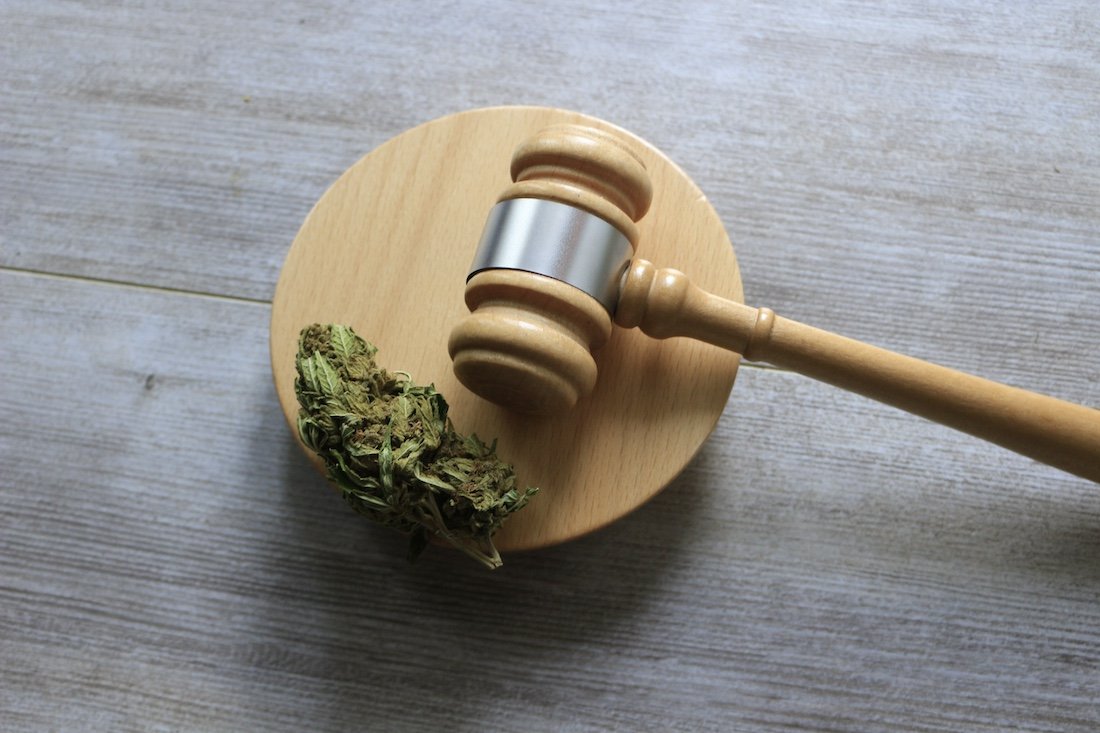THCa edibles are quickly becoming a popular alternative to traditional THC edibles, especially in states where recreational cannabis is not yet legal. THCa, or tetrahydrocannabinolic acid, is a non-psychoactive compound found in raw cannabis that only converts to THC—the compound responsible for the “high” effect—when exposed to heat. This means that THCa edibles, when consumed raw, remain non-intoxicating, making them an intriguing option for consumers looking for cannabis-like benefits without the psychoactive effects. For individuals in non-legal states, THCa edibles offer a unique pathway to explore the potential wellness effects of cannabis while staying within legal boundaries.
At StashDoor, we understand the growing demand for compliant, high-quality THCa products, including edibles. Our carefully curated selection of THCa edibles offers consumers a legal and versatile way to incorporate cannabis-derived options into their wellness routines. Whether you’re looking for a non-psychoactive experience or considering how THCa edibles might offer THC-like effects when heated, StashDoor provides lab-tested, federally compliant products to ensure a safe and enjoyable experience tailored to your needs. Explore our range and discover how THCa edibles can enhance your wellness journey, wherever you live.

What Are THCa Edibles and How Do They Work?
THCa edibles are cannabis-infused products made using THCa rather than THC, meaning they are typically created from raw, unheated cannabis. Unlike traditional THC edibles, which are designed to deliver psychoactive effects, THCa edibles remain non-psychoactive when they are not exposed to heat. This makes them ideal for consumers who are looking for cannabis-derived options without the “high” associated with THC. THCa edibles can come in various forms, such as gummies, capsules, or even baked goods, offering versatility in how they’re consumed.
The unique nature of THCa lies in its conversion to THC through a process called decarboxylation, which occurs when the compound is heated. Without this heating process, THCa does not become psychoactive, meaning that consuming raw THCa edibles will not lead to the intoxication commonly associated with cannabis products. As a result, these edibles can provide a subtle, non-intoxicating experience, making them suitable for a wider range of consumers, including those who may be new to cannabis or looking for alternatives to traditional THC products.
While THCa edibles do not produce psychoactive effects in their raw form, they are still rich in potential wellness benefits. Many consumers turn to THCa as they might to CBD, appreciating its potential anti-inflammatory, neuroprotective, and calming properties. For those seeking a natural way to support their wellness without psychoactive effects, THCa edibles offer a promising option that can be enjoyed legally and safely in non-legal states, as long as the products remain unheated and non-psychoactive.
The Legal Landscape: Are THCa Edibles Allowed in Non-Legal States?
THCa’s federal legality stems from the 2018 Farm Bill, which legalized hemp-derived products containing less than 0.3% Delta-9 THC by dry weight. Since THCa is naturally non-psychoactive in its raw form, it falls within the boundaries set by this legislation, provided it is derived from hemp and meets the THC limit. This legal framework allows THCa products, including edibles, to be sold and consumed across the U.S., even in states where recreational cannabis is not yet legal. THCa edibles, therefore, are accessible to consumers in non-legal states, offering a way to enjoy cannabis-related benefits without running afoul of federal laws.
The reason THCa edibles are generally allowed in non-legal states is their non-psychoactive nature when consumed raw, which differentiates them from THC edibles. Since THCa only becomes intoxicating when exposed to heat (through a process known as decarboxylation), consuming raw THCa edibles does not produce the high associated with THC, making them a viable option for those seeking non-intoxicating cannabis alternatives. This distinction enables consumers in restricted states to legally purchase and enjoy THCa edibles as long as they remain within the parameters of the Farm Bill.
However, it’s essential for consumers to be mindful of state-specific regulations, as individual states may interpret THCa laws differently. While THCa is federally compliant, some states have stricter cannabis regulations that may limit or prohibit certain forms of cannabis products, including edibles. Local authorities may impose additional restrictions on hemp-derived products, making it crucial for consumers to stay informed about their state’s stance on THCa edibles.
How THCa Edibles Convert to THC and What This Means for Consumers
THCa edibles are designed to be non-psychoactive when consumed raw, but if they’re exposed to heat, such as through baking or cooking, THCa converts to THC, resulting in a product that can produce psychoactive effects. This transformation, known as decarboxylation, occurs when THCa is heated, releasing a carboxyl group and converting it into the psychoactive compound THC. For consumers who enjoy experimenting with cannabis-derived products, this means that THCa edibles can be tailored to suit different experiences. Consuming them raw preserves the non-intoxicating effects of THCa, while heating them unlocks THC’s psychoactive properties, creating a versatile option.
Understanding this conversion process is essential for those who choose THCa edibles either for a non-psychoactive experience or to replicate the effects of traditional THC edibles. Those looking to avoid psychoactive effects may prefer to consume THCa edibles as they are, unheated, to enjoy wellness benefits without any high. On the other hand, consumers who want a more THC-like experience can activate THCa by applying heat. However, it’s crucial to approach this process with care, as converting THCa to THC will alter the experience significantly, potentially resulting in effects more potent than expected.
For consumers in non-legal states, it’s particularly important to be mindful of the legal implications of heating THCa edibles to activate THC. While raw THCa edibles fall within federal legal boundaries, converting them into psychoactive THC could enter a legal gray area depending on local regulations. Those who choose to activate THCa should be aware of their state’s stance on THC products to avoid unintended legal issues. By understanding how THCa decarboxylates, consumers can make informed choices that align with their preferences and stay within legal limits.
The Benefits of THCa Edibles as a Wellness Option
THCa edibles are becoming a popular choice for those seeking natural wellness benefits from cannabis without the psychoactive effects associated with THC. Emerging research suggests that THCa may offer various therapeutic properties, including anti-inflammatory, neuroprotective, and anti-nausea effects. These benefits make THCa edibles appealing for individuals managing conditions like arthritis, muscle pain, or nausea. Additionally, THCa has shown potential in supporting brain health, which may benefit those looking for neuroprotective effects. By offering these wellness properties in a non-psychoactive form, THCa edibles provide a versatile, accessible way to incorporate cannabis-derived compounds into a balanced wellness routine.
For consumers looking to avoid intoxication, THCa edibles provide an ideal solution. Because THCa does not produce a “high” when consumed raw, it allows users to enjoy potential therapeutic benefits without impairing their mental state. This makes THCa edibles suitable for those who prefer to experience the wellness side of cannabis while remaining clear-headed, and they are especially helpful for individuals who may be new to cannabis or sensitive to THC’s effects. By choosing THCa edibles, wellness-focused consumers can explore cannabis as a non-intoxicating option, similar to CBD but with a unique profile of potential effects.
Another benefit of THCa edibles is their legality in non-legal states, as long as they remain within federal guidelines. THCa edibles offer a convenient way for consumers to legally access cannabis-derived products without violating local laws, as they comply with the 2018 Farm Bill’s THC limit in their raw form. When consumed as intended, THCa edibles provide a safe, accessible pathway to wellness benefits, allowing individuals in restricted areas to enjoy cannabis-based products confidently and responsibly.

Discover the Wellness Potential of THCa Edibles with StashDoor
THCa edibles offer a unique, non-intoxicating way to experience the potential wellness benefits of cannabis, especially for consumers in non-legal states. Whether you’re seeking relief from inflammation, neuroprotective support, or simply a natural addition to your wellness routine, THCa edibles provide an accessible, legal alternative to traditional THC products when used as intended.
Explore StashDoor’s selection of high-quality, federally compliant THCa edibles today, and enjoy the versatility of THCa on your own terms. Discover a new path to wellness with products crafted for safe, effective, and enjoyable use.







